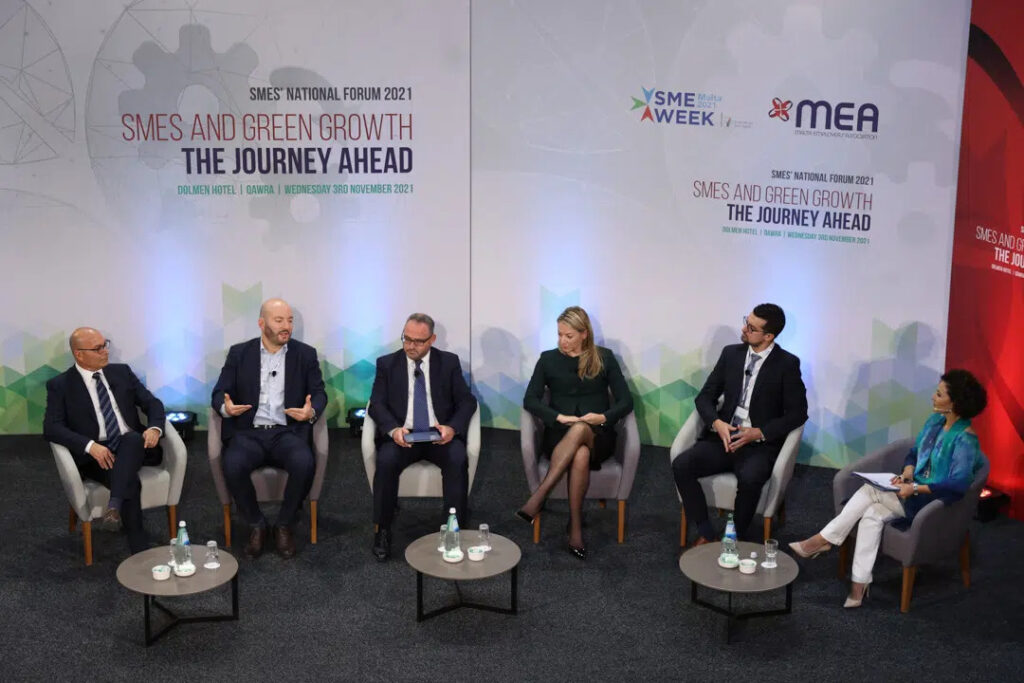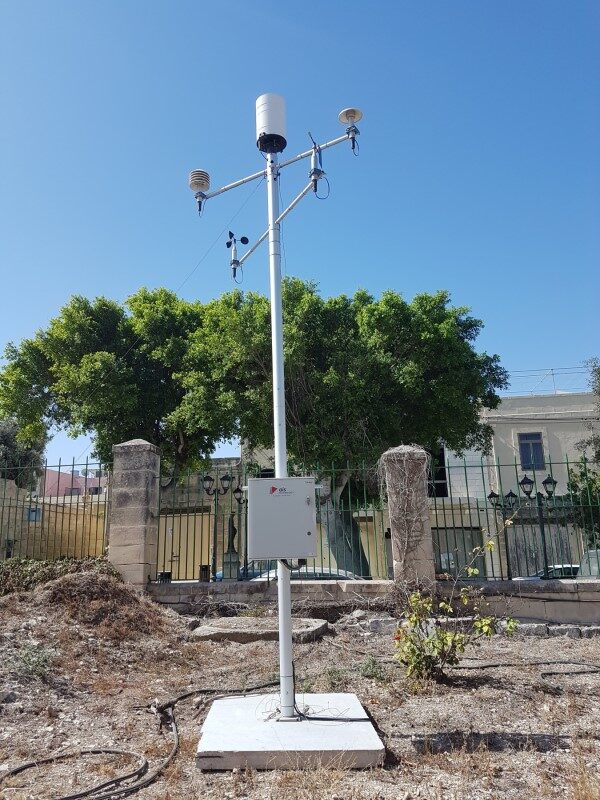General Manager of AIS Technology, Ing. Darryl Schembri was recently invited to the SME’s National Forum: SMEs & Green Growth – The Journey Ahead to discuss about waste monitoring issues in the sector.

During the event the panel discussed the issue of technology in the green economy and how development can lead to a reduction of our carbon footprint. Panelists highlighted the role of education at the foundation of the efforts needed to address these new realities.
Ing.Schembri, brought forward the challenges faced in the waste sector. Waste collectors and operators face numerous challenges when managing their waste bin infrastructure. Since waste collection tends to operate on a fixed schedule irrespective of the fill level of the bin, this results in;
- Inefficiency due to bins being collected early before the bin is full or late with the bin overfilled.
- Unnecessary collection trips lead to higher costs.
- Increased traffic congestion and elevated carbon emissions.
“By collecting data in real-time, waste collection operators can react quickly to changing demands and trends in social behaviour”.
A 360-degree solution
AIS Technology’s waste solution offers full coverage to all areas of waste management. Monitoring of bins levels, real-time communication with waste collectors, updated waste schedules, alerts, warnings, and more are all key features generated by AIS Technology’s waste sensors.
AIS Technology’s waste monitoring solution uses next-generation Internet of Things (IoT) technology to continuously check waste levels inside waste bins. Waste monitoring sensors are installed inside waste bins, which collect and transmit information into a central database.
The key parameters monitored by these sensors include;
- Bin fill level
- Ambient temperatures
- Alarms
Over and above, all sensors are battery-powered and communicate wirelessly through a nationally available Narrowband-IoT network. By collecting data in real-time, waste collection operators can react quickly to changing demands and trends in social behaviour.
This solution is only made possible thanks to a cloud-based Supervisory Management & Operations Software (SMOS) developed by AIS Technology. The SMOS provides vital operational information, its main purpose being to predict when the waste bins need to be emptied and in turn schedule the truck routes accordingly.
Date, time, and routes are generated from the SMOS and delivered straight to truck drivers. The resulting bin emptying operation is monitored directly within the platform whilst warnings and alerts allow operators to be notified immediately when a bin reaches full capacity.
The offline scenario
The solution also incorporates Artificial Intelligence (AI) to cater to scenarios when sensors are offline. Whilst it is expected that electronic systems work at all times, waste management is a harsh environment for technology and in reality, systems are not operating 100% all the time. By applying AI modelling, the solution maintains a high-quality service even in instances with pockets of data are missing.
Benefits
For the Public
A web app guides the general public to find their nearest available waste bin based on their physical location and the real-time fill levels inside the bins. Through the app, a user is asked for their GPS coordinates and the type of material they wish to dispose of. The app then finds the nearest available bin and directs them to the site.
For waste operators
AIS Technology’s waste monitoring solution provides numerous benefits to waste operators and local authorities. Thanks to nationwide IoT coverage, the waste bins can be installed anywhere across the Maltese Islands. Battery-powered devices with a long lifetime ensure maintenance costs are kept to a minimum. Therefore, waste operators benefit from increased operational efficiencies, leading to reduced costs.
For the Environment
The biggest benefit of the waste monitoring solution is the many positive impacts it has on the environment. These include a significant reduction in unnecessary collection trips, an increase in recycled waste collected, and a lower carbon footprint through reduced vehicle emissions.
The waste monitoring solution is only possible thanks to Internet-of-Things (IoT) technology. AIS Technology’s solution can be implemented, adapted, or installed in a variety of different ways and any city or region in the world where information and management of waste in public spaces are important.
